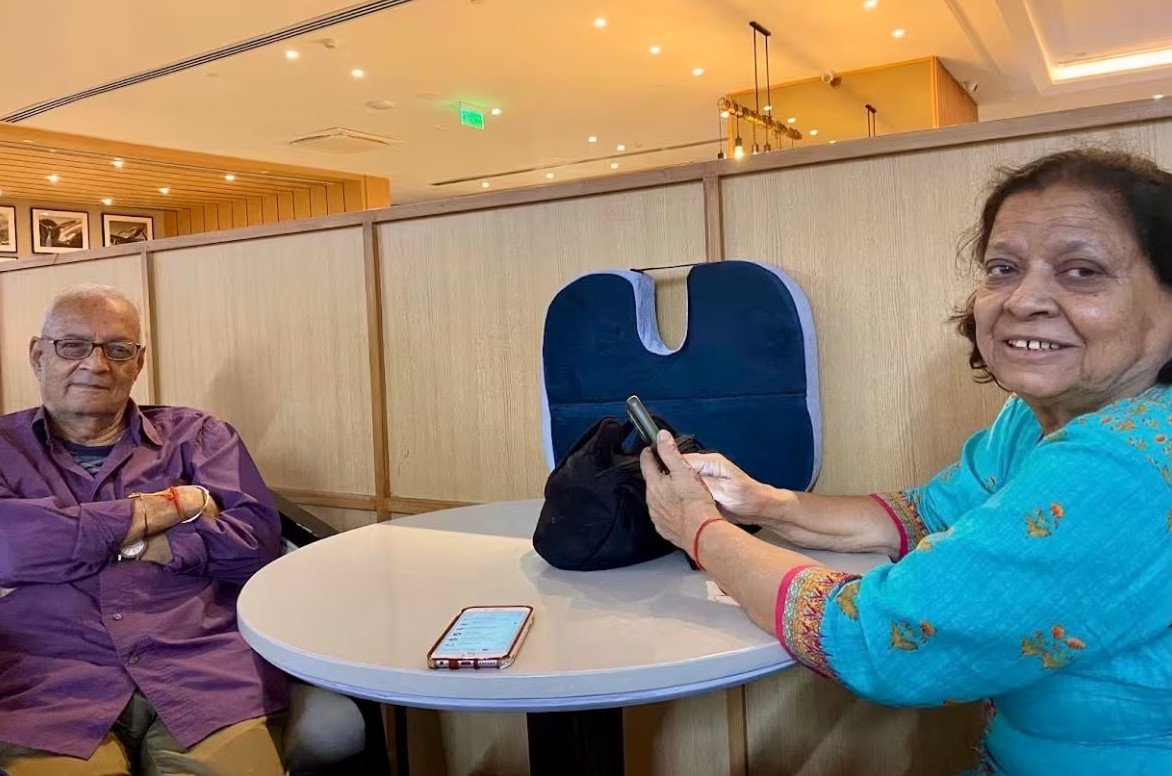The daughter of a retiree is looking to a major Canadian airline for answers after her father became ill on a recent 16-hour flight from India to Canada and died upon arrival.

Despite asking the airline crew several times to divert the plane to the nearest European airport and hospital, Shanu Pande says she still doesn’t understand why it didn’t happen.
“I requested multiple times … three or four times,” Pande explained.
She describes the experience as “extremely traumatic” after learning her 83-year-old dad, Harish Chandra Pant, died from a presumed myocardial infarction.
Pant was in the process of permanently moving from a home in Mumbai to Milton, Ont., as a landed immigrant to be closer to other family members in his twilight years.
“What he loved about being in Canada was the natural beauty,” Pande said when remembering her dad.
“He was an avid reader of books, so he had easy access to the library and so that’s why he loved coming here.”
After an evening meal at an airport lounge, Pande says she, along with her father and mother-in-law, boarded an Air Canada jet just before midnight on Sept. 10 to make a 16-hour journey to Montreal before connecting with a flight to Toronto.

Get daily National news
Seven hours into the journey, she says Pant became ill.
“He started having a grumbling noise and his face fell on one side and he started complaining of severe chest pain,” Pande recalled.
Suspecting he may be having heart trouble, Pande says she and her mother-in-law called for assistance, prompting three to four crew members to come to their seats.
Too weak to make a trip to the bathroom on his own after several minutes of vomiting, the senior would be put into a wheelchair and escorted to a toilet for further care and to be cleaned up.
Pande says during that time she requested a doctor and a diversion of the flight in order to get to a hospital.
After he was placed in a business class seat, she says the crew told her the flight would continue to Canada with no diversion since it was considered a non-life-threatening emergency.
Paramedics would board the plane in Montreal some nine hours after Pant’s first symptoms and work on the senior, according to Pande.
“I was hysterical at that point,” she said.
After departing the plane sometime around 7 a.m., Pant would later be pronounced dead in a hospital.
Dr. Harriette Van Spall, a cardiologist with Hamilton Health Sciences, says a myocardial infarction or a ‘heart attack’ is caused by a decrease or complete cessation of blood flow to a portion of the heart muscle.
She says symptoms include chest pain, tightness, discomfort in the jaw, neck, or arm as well as shortness of breath, profuse sweating, or upper abdominal discomfort.
“In some cases, there may be no symptoms, ” Van Spall said.
“A person may die suddenly without symptoms.”
A crushed Pande said she’s angry with the lack of care and sympathy her family members were shown during the incident, characterizing the airline’s actions as “arrogant” and “callous.”
Air Canada extended “deepest sympathies” for the family’s loss in an email to Global News, but “rejects any assertions” that it was responsible for the death.
The airline insists passenger safety onboard all Air Canada flights is an “overriding priority,” and that the crew acted accurately during the episode.
“We can confirm that throughout the flight in question, Air Canada’s crew properly followed the procedures for dealing with onboard medical events and provided continuous care for the passenger, including relocating him to the business cabin so he could fully recline,” the statement said.
“It is important to note that based on careful consultation with the ground-to-air medical team, diversion was not recommended.”
The airline explained that it uses a specialized ground-to-air, third-party medical provider that enables crew to liaise in real-time with doctors specializing in aviation medicine.
“Based on the advice of medical experts, we will divert an aircraft to a nearby airport with appropriate medical facilities to obtain care without hesitation if needed, something we do 40 times a year on average,” Air Canada said.
They added that Pant was conscious upon arrival, but “passed away while being attended to by the paramedics.”
Pande believes her father would still be alive today if her request for a diversion was granted.
She says there’s been some contact with the airline via email and a phone call with a representative since returning home.
Unsatisfied with the explanations offered, the family has reached out to a lawyer and is looking at their legal options.
Ultimately, Pande says they’re asking the airline to reveal who refused the diversion and insists on disciplinary action for those involved.
“They are not giving any straight answers, and they have just closed the case,” Pande submitted.










Comments
Want to discuss? Please read our Commenting Policy first.